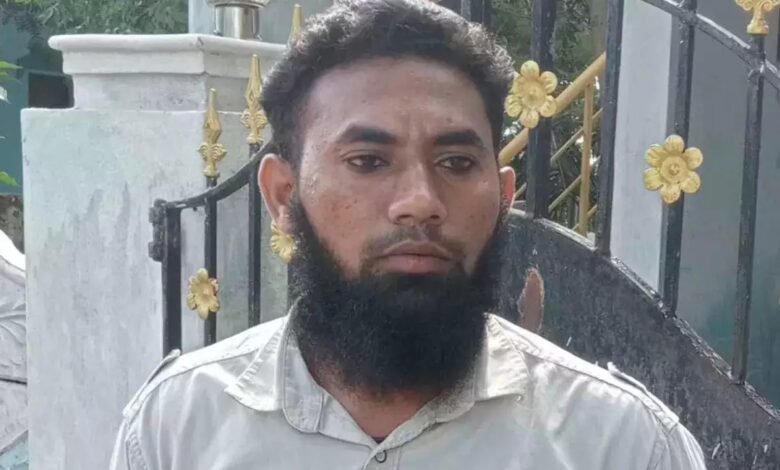
A man identified as Al-Fazid has been detained in Chennai for his alleged involvement in radicalization efforts linked to the terrorist organization ISIS. Reports indicate that he had connections with a key suspect arrested in 2023, who was accused of creating WhatsApp groups to recruit and indoctrinate youths into extremist ideologies.
Authorities Uncover Radicalization Network
The detention of Al-Fazid marks a significant development in ongoing investigations into extremist recruitment in India. Law enforcement agencies had been monitoring his activities for several months, following intelligence inputs linking him to previous suspects involved in radicalization networks.
According to sources, Al-Fazid maintained close contact with an individual arrested in 2023 for operating multiple WhatsApp groups aimed at spreading extremist propaganda and recruiting potential operatives. These online platforms were reportedly used to share radical materials, discuss terror strategies, and lure young individuals into the fold of ISIS.
Investigation and Security Measures
Chennai police and national intelligence agencies collaborated in the operation that led to Al-Fazid’s detention. His digital footprint, including social media activity and communication records, is being thoroughly examined to uncover additional links to radical elements. Authorities suspect he may have played a role in furthering recruitment efforts beyond Chennai, potentially influencing individuals across different states.
Forensic analysis of his devices is expected to reveal whether he was actively involved in planning any terror activities. Investigators are also probing whether he had direct communication with international handlers or if his activities were confined to India.
Concerns Over Online Radicalization
The case highlights the growing challenge of digital radicalization, where extremist groups exploit social media and encrypted messaging platforms to spread their ideology. The use of WhatsApp and other secure communication channels has made it increasingly difficult for authorities to track illicit activities.
Experts warn that India must strengthen cyber-surveillance mechanisms to curb the spread of extremist propaganda. Recent incidents suggest that radical networks are adopting sophisticated methods to evade detection, making counter-terror operations more complex.
Government and Law Enforcement Response
The Indian government has reiterated its commitment to combating radicalization and terror recruitment. Security agencies have been directed to enhance monitoring of online extremist content and take swift action against individuals promoting terrorism.
Tamil Nadu has witnessed several anti-terror operations in the past, underscoring the need for continued vigilance. Authorities are urging the public to report any suspicious activities and remain cautious of online content that promotes extremist ideologies.
Conclusion
The detention of Al-Fazid underscores the persistent threat of online radicalization and the importance of proactive intelligence efforts. As investigations continue, security agencies remain focused on dismantling extremist networks and ensuring national safety.






